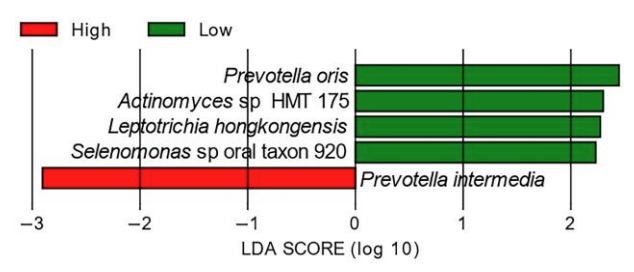The micro organism residing inside your mouth may very well be influencing extra than simply the well being of your gums and enamel. Your mind may also be impacted by these oral colonizers.
In a examine of 55 individuals with delicate cognitive impairment (MCI), those that hosted a comparatively excessive abundance of micro organism from the genus Neisseria of their mouths had higher working reminiscence, government operate, and visible consideration.
Even amongst 60 folks with out cognitive decline, when Neisseria dominated the oral microbiome, working reminiscence scores improved.
The present examine, led by researchers on the College of Exeter within the UK, means that by selling sure micro organism within the mouth we may doubtlessly delay cognitive decline. This may very well be achieved with probiotics or prebiotics that may increase and feed sure microbial communities within the oral cavity inside simply weeks.
The findings align with different current research, which counsel the reason for dementia could also be coming from contained in the mouth.
Lately, as an example, poor oral well being has emerged as a significant threat issue for cognitive decline. Scientists have even discovered some micro organism linked to gum illness within the brains of those that have died from Alzheimer’s.
Nonetheless, not all microbes within the mouth are essentially dangerous to the mind; some may very well be protecting, too. Just like micro organism within the intestine, a properly balanced microbiome is vital.
The Neisseria genus contains greater than 20 species of micro organism, a lot of which generally dwell within the nostril and mouth fairly peacefully and could even confer well being advantages.
Just lately, research have discovered Neisseria micro organism can decrease an individual’s systemic blood strain by serving to to transform nitrate-rich meals (often greens) to nitric oxide.
Nitric oxide is a key signaling molecule within the physique, which protects towards gum illness and helps management and regulate blood strain, in addition to our cardiovascular response to train. It may additionally assist maintain the mind wholesome.
Based mostly on current proof, some neuroscientists suspect nitric oxide could defend the central nervous system by boosting neural plasticity and bettering the effectivity and energy of neural messages. The signaling molecule could even scale back neural irritation – a central mechanism of Alzheimer’s.
Intriguingly, people who find themselves genetically predisposed to Alzheimer’s are likely to have hassle naturally producing nitric oxide.
Within the present examine, molecular biologist Joanna L’Heureux and her colleagues discovered that of 33 individuals with MCI who have been genetically predisposed to Alzheimer’s, many had oral microbiomes dominated by the Prevotella genus and never the Neisseria genus.
One species of Prevotella specifically, P. intermedia, was a predictor for an elevated genetic threat for dementia. This implies it may very well be used as an early marker of illness threat.

Within the examine, when the Prevotella genus reigned, there was much less nitrate obtainable within the mouth to transform to nitric oxide, most likely as a result of Prevotella makes use of the nitrate for different means.
Thus, by selling Neisseria and eradicating Prevotella within the mouth, the authors of the examine suppose they may doubtlessly affect nitric oxide availability, thereby influencing the well being of the mind.
Nitrate-rich diets, just like the Mediterranean weight loss program, are linked to improved mind well being, however additional analysis is required to know the hyperlink between what we put in our mouths, our oral microbiome, and the key signaling molecules produced by these microbes.
A 2021 examine in wholesome older folks, as an example, discovered a correlation between oral microbiomes dominated by Neisseria (and a co-occurring genus, referred to as Haemophilus) and sustained consideration, even when the quantity of dietary nitrate modified.
Different analysis has linked greater charges of Neisseria to youthful age, decrease physique mass index, fewer enamel with harm, and never smoking.
“Collectively, these results indicate that a high relative abundance of bacteria belonging in the Neisseria–Haemophilus module is associated with better cognitive outcomes in individuals with MCI as well as in healthy older people,” conclude L’Heureux and her workforce.
The examine was printed in PNAS Nexus.

